By Carol L. Lasek, CLU®, ChFC®
Partner, Bienenfeld, Lasek & Starr, LLC
We buy health insurance to protect our health and car insurance in case of a car accident.
But how many of us have Disability Income Insurance to help replace a portion of our income in case of unexpected illness or accident?
It turns out we are all vulnerable.
The COVID-19 pandemic has really highlighted the need for working people of all ages to consider purchasing a policy which helps replace a portion of their income and helps cover their living expenses when they are unable to work. Our vulnerability is compounded by rising medical costs, lack of emergency savings and the limited number of employers who offer Disability Income Insurance.
The financial consequences can be alarming.
May was Disability Insurance Awareness Month (DIAM), a pivotal time when insurance companies and The Council for Disability Awareness join forces to inform the public of the importance of Disability Income Insurance (DI) and dispel the myths that may prevent consumers from making DI a priority.
Here are three surprising myths about Disability Income Insurance: Myth #1: The most common cause of disability is an accident.
Contrary to popular belief, the most common cause of disability is not an accident or injury but sickness. As a matter of fact, almost 90% of the causes of a disability are due to sickness and only 12% are due to an accident. i
Here is another unexpected statistic. According to the Council for Disability Awareness, more than one in four of today’s 20-year-olds can expect to be out of work for at least a year because of a disabling condition before they reach normal retirement age. On average, 5.6 percent of working Americans will experience a short-term disability (six months or less) due to illness, injury, or pregnancy every year; the majority of this short- term disability will be non-occupational in origin. ii
It's important to keep in mind that the need for DI is not occupation-specific but also is not age-related. It is not just for men or just for women. It is not just for people in high risk jobs nor is it just for individuals with a high income. It should be a consideration for anyone who depends on their income to support themselves and/or their family.
Myth #2: Social Security Disability Insurance will cover your income losses.
We often have this false sense of security about the coverage of Social Security Disability Insurance (SSDI) which “pays disability benefits to people who can’t work because they have a medical condition that’s expected to last at least one year or result in death.” iii
It is unrealistic to depend on Social Security Disability Insurance to kick in and cover your loss of income. The application process can be extremely cumbersome, the qualification process can be daunting and the monthly payments are not based on the severity of your disability or the amount of your income. According to the official statistics posted on the Social Security website, the average amount for benefits awarded each month as of April 2020 was $1418.58 which translates into approximately $17,000 a year. If you have to appeal, it can take two to three years before you see a payment.iv
There are people who do receive payments from social security. It’s just not something most of us can count on financially, which is why it is important to have a backup.
Myth #3: One disability policy is just like the other.
Disability Income Insurance is probably one of the more complex types of insurance policies. Each carrierhas its own definition of what constitutes a disability which may or may not include pregnancy, cancer, musculoskeletal or gastrointestinal disorders as well as mental health issues. Additionally, there are so many different options available to provide the most cost-effective way to protect your income.
On a final note: There is a common misconception that most people cannot afford disability income insurance. We believe the one thing you can’t afford is not to explore the options with a professional team of experts.
Knowledge is financial power when it comes to choosing the disability policy which best fits your age bracket, profession as well as your short term and long-term financial needs.
We can help you explore all of your options and methods to supplement your company provided benefit (if available), determine appropriate waiting periods and benefit payouts and find the right disability insurance policy for your profession.
Together we can set up a safety net for a percentage of your paycheck so you can potentially get paid even when you are unable to work.
i Source: Integrated Benefits Institute, Health and Productivity Benchmarking, 2017 Long Term Disability, September 11, 2018
ii U.S. Social Security Administration, Fact Sheet September 2019.
iii The law defines disability as the inability to engage in any substantial gainful activity (SGA) by reason of any medically determinable physical or mental impairment(s) which can be expected to result in death or which has lasted or can be expected to last for a continuous period of not less than 12 months. Ssa.gov
iv Survey on Social Security claim process https://www.disabilitysecrets.com/resources/survey-statistics-how-long-does-it- take-to-get-approved-for-social-security-disability-benefits.html
Securities and investment advisory services offered through qualified registered representatives of MML Investors Services, LLC. Member SIPC. www.SIPC.org on electronic advertisements. BLS Wealth Management is not a subsidiary or affiliate of MML Investors Services, LLC, or its affiliated companies. 1000 Corporate Drive, Suite 700, Fort Lauderdale, FL 33334, 954-938-8800. Estate Planning services are provided working in conjunction with your Estate Planning Attorney, Tax Attorney and/or CPA. Consult them for specific advice on legal and tax matters. CRN202104-265872

